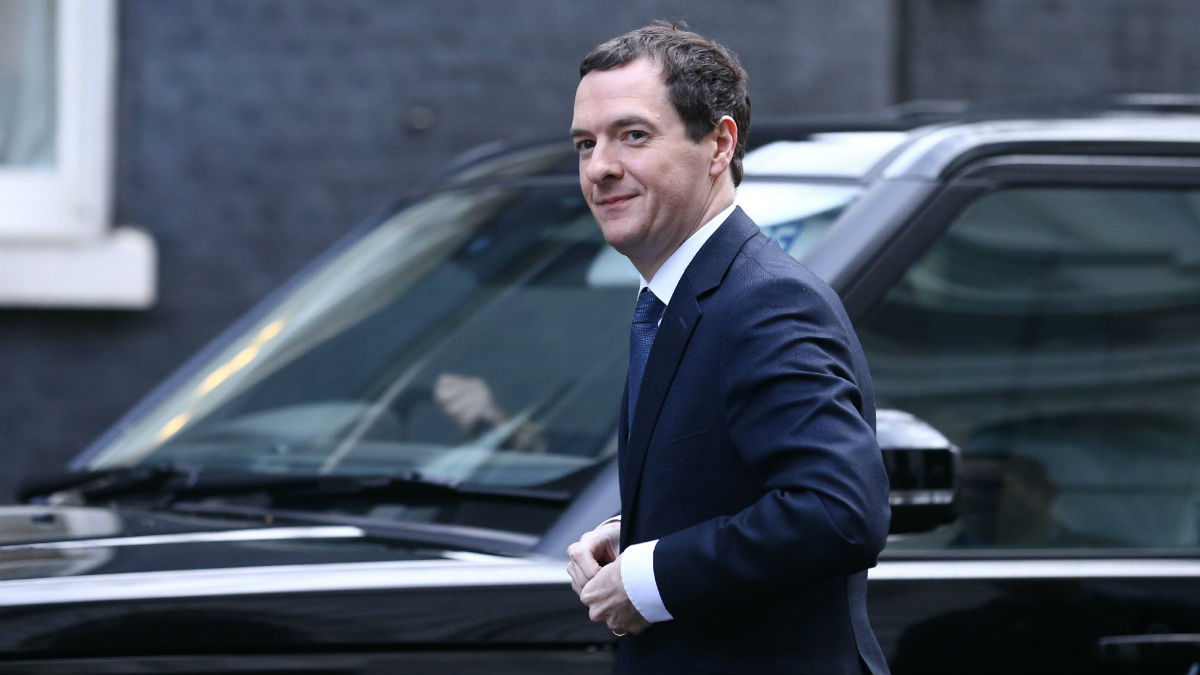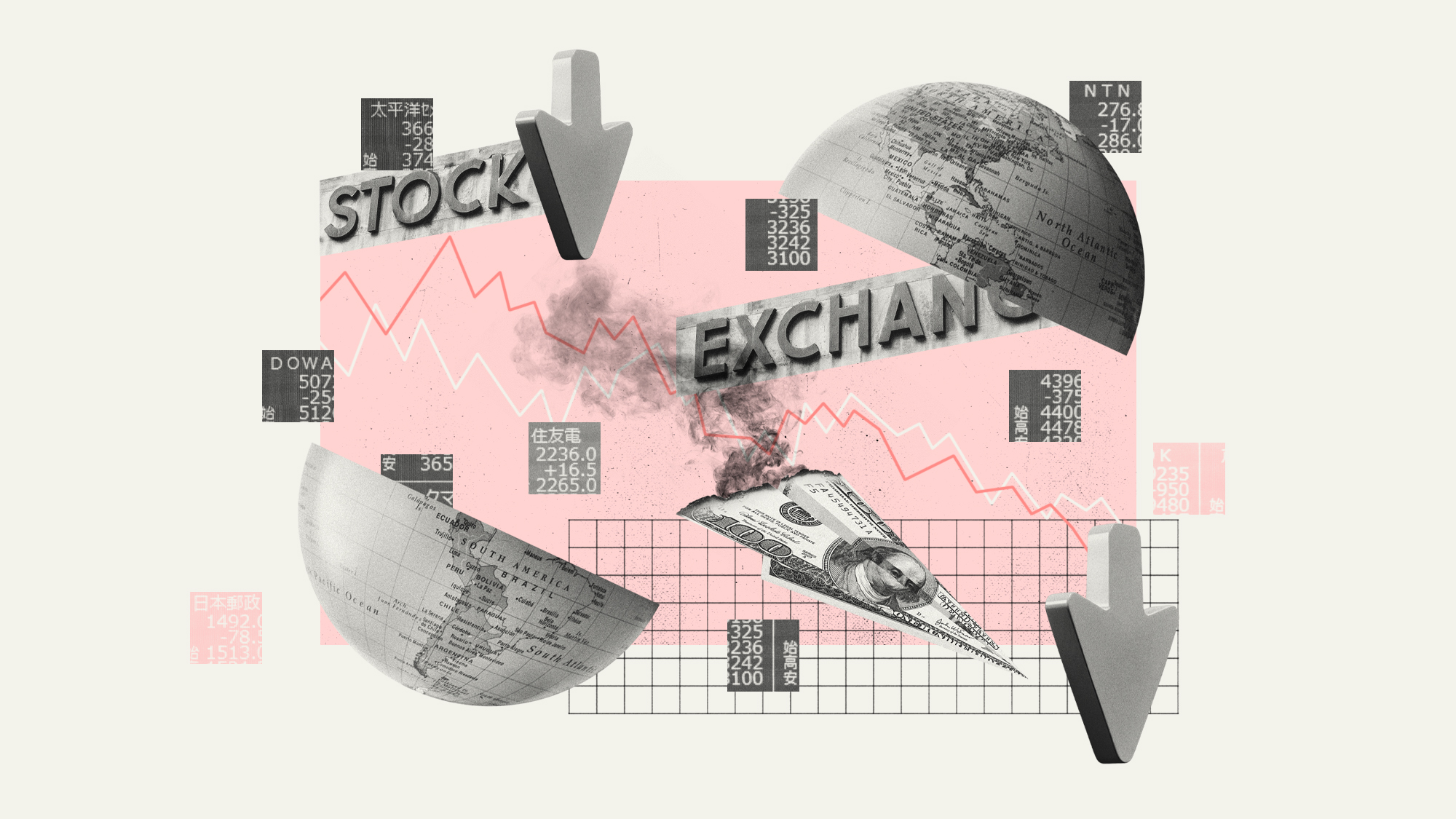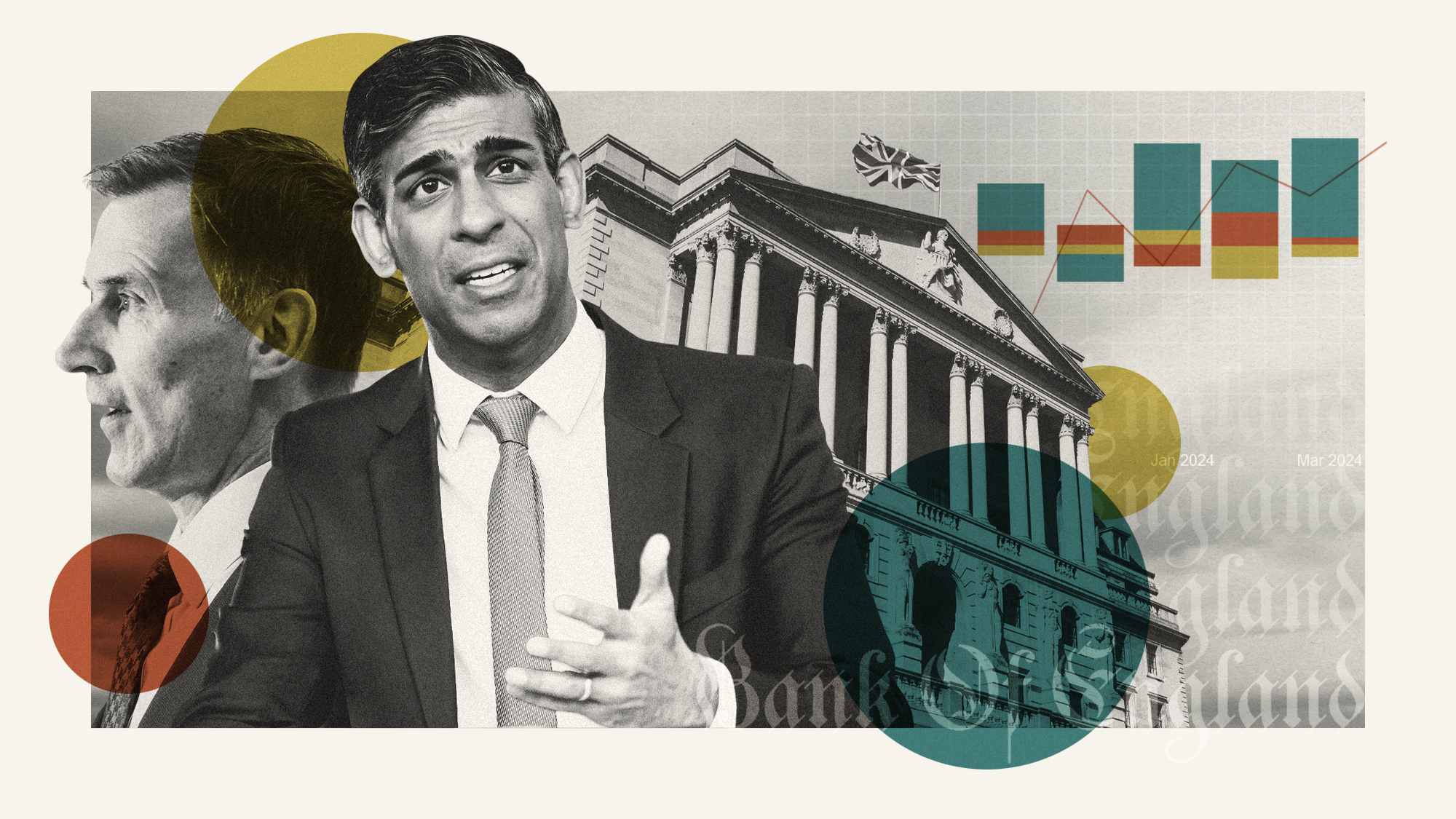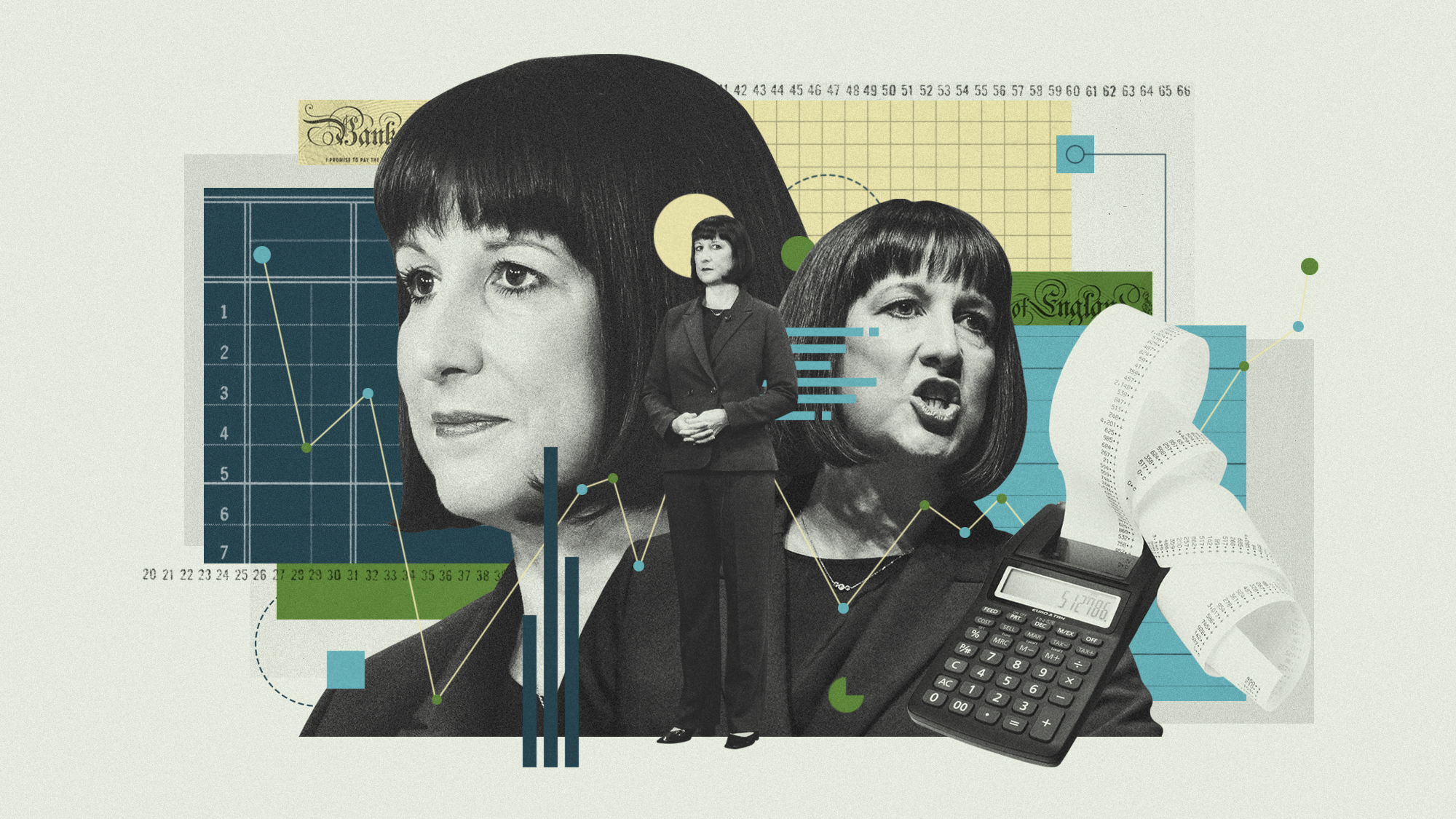UK exports enjoy record rise, so where is the Chancellor?
Manufacturers say 'worst is behind' the sector – but that doesn't fit the Brexit narrative

A free daily email with the biggest news stories of the day – and the best features from TheWeek.com
You are now subscribed
Your newsletter sign-up was successful
Ordinarily, reports showing a big rebound for UK manufacturing output and a record rise in exports to narrow the trade deficit would be a boon for the Chancellor.
But with less than two weeks to go before the EU referendum, these are not normal circumstances.
And there is good news. On Wednesday, the BBC reported that manufacturing rose 2.3 per cent in April according to official estimates, while wider industry output added two per cent. Both were the highest one-month gains since July 2012.
The Week
Escape your echo chamber. Get the facts behind the news, plus analysis from multiple perspectives.

Sign up for The Week's Free Newsletters
From our morning news briefing to a weekly Good News Newsletter, get the best of The Week delivered directly to your inbox.
From our morning news briefing to a weekly Good News Newsletter, get the best of The Week delivered directly to your inbox.
Anecdotal evidence that this was the result of a boost in exports were confirmed today by separate official data showing overseas purchases of UK goods and services leapt more than 11 per cent in April.
This is the quickest pace of expansion since records began in 1998, while the value of goods exported at £26.1bn was close to its all-time high. The trade deficit in April was £3.3bn, down from £3.5bn in March and the lowest level since September 2015.
Such reports are generally followed by a swift statement hailing the government's "long-term economic plan" and the beginning of a long-prophesised "march of the makers".
This time, however, there has been a conspicuous silence. "Where was the instant statement from the chancellor praising the strength of the economy and the success of the government’s strategy?" asks Larry Elliott in The Guardian.
A free daily email with the biggest news stories of the day – and the best features from TheWeek.com
"Sherlock Holmes would have had the answer. Osborne’s unusual reticence was a classic case of the dog that doesn’t bark."
Elliott notes that in the "curious times" we are living, ahead of the EU referendum, positive economic data does not actually suit the Chancellor.
"His narrative is that the risk of Britain leaving the European Union has left the economy trembling on the edge of the precipice and for that story to stick he needs signs that consumers and businesses are taking fright at the risk of Brexit."
In some respects, the growth has, ironically, probably been caused by the uncertainty prompted by the EU vote as this has hit the value of the pound and made UK goods cheaper to overseas buyers.
Nevertheless, it does suggest firms themselves are not affected by fears of Brexit – and that will be welcome news for the Out camp.
Howard Archer, the chief UK economist at IHS Global Insight, said: "Along with the jump in industrial production in April and decent retail sales growth, the trade data suggest that UK GDP growth could be holding up better in the second quarter than has been thought."
However, while the news is encouraging - Zach Witton, the deputy chief economist at the EEF manufacturers' organisation, said "it generally fits with the picture that the worst may now be behind the sector – industrial output is still ten per cent behind the pre-crisis peak.
'Horrible' UK trade deficit offers glimmer of hope
10 May
The monthly UK trade deficit numbers have been greeted with howls of derision
According to the Office for National Statistics, the value of goods and services exported by UK businesses was £13.3bn less than those imported for the first three months of the year. This, notes The Times, marks "the largest shortfall for any calendar quarter since the first quarter of 2008, when it reached £14.4bn".
In addition, the shortfall of goods and services with the European Union has widened by £700m to a new record £23.9bn.
Ahead of the EU referendum, trade has become a key issue. The Remain camp warns that the dependence of the UK on inward flows of capital poses an economic risk in the event of Brexit. In contrast, the Leave camp argues that the size of the deficit will "encourage other EU countries to grant Britain continued access to the European single market", according to The Guardian.
Howard Archer, the chief UK economist at IHS Global Insight, describes the quarterly figures as "horrible". Scott Bowman, of Capital Economics, believes trade has knocked more than 0.3 per cent off GDP growth of 0.4 per cent in the three months to March.
It isn't all bad news, however. The figures for March show the deficit narrowed more than expected, says Digital Look, with a rise in exports of goods of £400m. This reduced the shortfall to £3.8bn from an already downwardly revised £4.3bn in February.
The figures are positive for two reasons. Firstly, they indicate green shoots of recovery for UK exports – these increased over the quarter as a whole by £500m – and secondly, they suggest that claims that trade would slow down in the lead up to the EU referendum were overblown.
Some economists do not see even the wider trade deficit as a major problem. Instead, they see it as an inevitable consequence of a return to growth in an advanced, demand-led economy. The deficit remains a major issue for the government, however, both for the negative statistical effect on the headline GDP number and because its own target of £1trn in exports by 2020 is unlikely to be met.
Stephen Ibbotson, the director of business at the Institute of Chartered Accountants in England and Wales, said: "This is likely to be a three parliament challenge."
UK growth warning as survey shows confidence at 'low ebb'
11 April
Turmoil in the global economy and uncertainty at home ahead of the EU referendum have left many of the UK economy's key indicators at a "low ebb" and could signal slower growth in the months ahead, according to a survey.
The British Chambers of Commerce (BCC) poll, taken from 8,500 of its members, showed a fall in domestic orders in the dominant services sector, which makes up as much as 80 per cent of the UK economy, taking it to its lowest level for three years, notes the BBC.
Manufacturing bosses also reported falling orders at home. This comes on the back of a survey last week that showed "industrial output fell 0.5 per cent in February from a year earlier, the biggest decline since August 2013".
There was, the Daily Mail adds, a reported rise in manufacturers saying export orders have risen and an overall uptick in the export balance, which has been attributed to the recent sharp fall in the pound as fears mount the EU referendum could see a vote for Brexit.
Leaving the European Union is actually being advocated by former BCC chief John Longworth, who stepped down earlier this year after saying, during a speech in his professional capacity, that the UK could have a "brighter" future outside the bloc.
The BCC is officially neutral but most of its members want to remain, with many experts saying a fall in business confidence and inward investment is down to concern at the prospects for an Out vote.
Overall, the survey showed little change in the headline economic trend, which could be a positive sign after growth in the final quarter of 2015 was revised up. But the weak indicators could be also a sign that growth is waning and that the first quarter may have seen a slight slowdown.
"While the picture is static overall, there are clear indications that economic growth is continuing to soften," said Dr Adam Marshall, the BCC's acting general secretary. "From sales and orders to confidence and investment intentions, many of the business indicators we track are at a low ebb."
UK growth better than thought – so why aren't we celebrating?
01 April
At first glance things are looking pretty darn good for the British economy. "Party on", shouts a headline in City AM, before noting, more cautiously, that "things aren't as bad as we thought".
UK economic growth in the fourth quarter of 2015 was already up on the preceding three months and has now been revised to an even higher figure in the latest estimate from the Office for National Statistics. The dominant services sector led the way, but a contraction in industrial production was also less severe than previously thought and an originally-estimated dip in construction has now been reversed.
The economy is reckoned to have grown by 0.6 per cent between October and December, up from 0.5 per cent. On an annual basis, expansion was 2.1 per cent, not 1.9 per cent, and growth for 2015 as a whole was 2.3 per cent, an improvement on a previous reading of 2.2 per cent. Services growth was upgraded from 0.7 per cent to 0.8 per cent, while construction's 0.4 per cent has become a 0.3 per cent rise.
Despite the apparent good news, most of the reports on the figures take a decidedly dour tone. The devil is in the detail – and especially in the updated figures on the UK's current account deficit.
Overall the balance of payments with the rest of the world surged to a record negative reading of £32.7bn, equivalent to seven per cent of GDP. This was up from a little more than four per cent in the third quarter, worse than an expected jump to £21bn and the worst proportional figure since quarterly records began in 1955, notes The Guardian.
A shortfall in exports versus exports rose from £8.9bn to £12.3bn in the final quarter, although this was better than initially thought.
The biggest part of the increase came in the so-called "primary income deficit", which the Financial Times notes is not included in the GDP calculation. This measures the income being paid on British assets to overseas investors compared to that coming in from UK investments abroad. The deficit more than doubled from £5.9bn in the third quarter to £13.1bn.
All of this is worrying because it means, according to the Bank of England's governor Mark Carney, that the UK is "dependent on the kindness of strangers", or in other words money flowing into Britain from other countries. If the UK were to vote to leave the European Union in June there is a fear this could dry up, leaving Britain at risk of a substantial economic shock.
But not everyone thinks this is a problem.
Alan Clarke, an economist at Scotiabank, explained: "The problem is that the UK economy is outperforming its neighbours (a nice problem to have). The UK's main trading partners have not grown as fast as the UK – hence the returns on our investments in those markets have suffered... By contrast, overseas investors into the UK have done well."
"Where would you rather invest – a fast growing economy like the UK or an economy with persistent disappointments in growth?"
'Relief' at UK GDP data – but the big tests are to come
25 February
Investors breathed a sigh of relief – and traded stocks substantially higher – after latest official data held firm on improved economic growth in the UK at the end of last year.
The second estimate of GDP from the Office for National Statistics confirmed the economy expanded by 0.5 per cent over the three months to December. This was slightly better than the 0.4 per cent growth registered for the three months to September and defied some predictions that a decline in business investment acted as a stronger drag than had initially been thought.
"The fact that quarterly UK GDP growth in Q4 was left unrevised at 0.5 per cent was expected, but nonetheless comes as a bit of a relief given the jitters about the global recovery at the moment," Capital Economics chief UK economist Vicky Redwood said in a statement quoted by FTAdviser.
The FTSE 100 was up 2.2 per cent and hovering around the critical 6,000 threshold by midday.
Business investment did still fall in the final three months of the year – and by 2.1 per cent, marking the sharpest decline for two years, The Guardian notes. There was also a big drag effect from the trade deficit, although the rise in imports and decline in exports were both smaller than in the previous quarter.
Holding up the economy is buoyant consumer spending that feeds into the UK's dominant services sector. Private consumption grew by 1.8 per cent in the final three months of last year as even relatively weak wage growth boosted net incomes at a time of near-zero inflation.
While this trend should continue, not least as a result of a big rise in the minimum wage for most workers soon, the big test for the UK economy is to come in the form of the European Union referendum. As well as causing destabilising uncertainty, it might hit investment further and thus drag on growth – and an actual vote for Brexit could, some say, trigger a recession.
The referendum is not all bad news, however. The pound fell to multi-year lows against the dollar after last weekend's announcement and if the currency remains weak, it should help exporters who have struggled to remain competitive as sterling soared in recent years.
UK GDP data ease worries over growth slowdown
28 January
Fears that UK economic growth is slowing dramatically and will soon head into reverse have been eased by the latest official GDP data, which showed faster expansion in the final three months of last year.
The first estimate for the three months to December from the Office for National Statistics says output expanded 0.5 per cent. This is in line with the broad consensus of analysts, at the top end of a predicted range, and marked a pick-up in the quarter-on-quarter pace of growth from the previous 0.4 per cent.
Overall, the UK economy grew by 2.2 per cent last year, matching the revised forecast from the Office for Budget Responsibility and the International Monetary Fund. They have estimated growth this year of 2.4 and 2.2 per cent respectively, while a more bullish forecast from the influential Ernst & Young Item Club says consumer spending could drive the economy up 2.6 per cent.
Spending was a big factor in the economy holding up well in the final quarter, as the powerful services sector again led the way with increased expansion of 0.7 per cent. It is the only part of the economy that is larger than it was before the 2008 financial crisis, The Guardian notes, and now accounts for 80 per cent of economic activity.
This in itself is one of the negative aspects of the report: growth in the UK is very unbalanced and the construction and manufacturing sectors both recorded modest declines in the final quarter. There is also the fact that annual expansion was still well down on the 2.9 per cent in 2014, although Reuters points out last year's figure still puts the UK near the top of the global pack.
"The figures are likely to ease worries that Britain is facing a sharp economic slowdown as domestic demand appears to have remained resilient," Reuters added.
Chancellor George Osborne welcomed the figures, but reflected the weaker annual totals and acknowledged that growth will be harder to come by at a time of severe global economic headwinds. This, he said, made it all the more important to stay the course with the government's economic plan.
-
 The Gallivant: style and charm steps from Camber Sands
The Gallivant: style and charm steps from Camber SandsThe Week Recommends Nestled behind the dunes, this luxury hotel is a great place to hunker down and get cosy
-
 The President’s Cake: ‘sweet tragedy’ about a little girl on a baking mission in Iraq
The President’s Cake: ‘sweet tragedy’ about a little girl on a baking mission in IraqThe Week Recommends Charming debut from Hasan Hadi is filled with ‘vivid characters’
-
 Kia EV4: a ‘terrifically comfy’ electric car
Kia EV4: a ‘terrifically comfy’ electric carThe Week Recommends The family-friendly vehicle has ‘plush seats’ and generous space
-
 French finances: what’s behind country’s debt problem?
French finances: what’s behind country’s debt problem?The Explainer Political paralysis has led to higher borrowing costs and blocked urgent deficit-reducing reforms to social protection
-
 Why Spain's economy is booming
Why Spain's economy is boomingThe Explainer Immigration, tourism and cheap energy driving best growth figures in Europe
-
 'Super Mario' to the rescue: can Draghi fix Europe's economy?
'Super Mario' to the rescue: can Draghi fix Europe's economy?Today's Big Question Former central bank boss calls for more innovation and investment – but faces 'too many moving parts for a straightforward fix'
-
 Why are global stock markets plunging?
Why are global stock markets plunging?Today's Big Question Europe, Asia and Wall Street have all suffered big falls after US economy data spooked investors
-
 Is the UK economy returning to normal?
Is the UK economy returning to normal?Today's Big Question Tories claim UK has 'turned a corner' while Labour accuses government of 'gaslighting' public
-
 Securonomics: what is Rachel Reeves' economic plan and will it work?
Securonomics: what is Rachel Reeves' economic plan and will it work?The Explainer Focus on economic security and the resilience of industry in an uncertain world is 'key to growth', say Labour
-
 Has life in Russia regressed since the Ukraine invasion?
Has life in Russia regressed since the Ukraine invasion?Today's big question The 'war economy' has defied Western sanctions as ordinary citizens rally round the regime
-
 What’s causing China’s deflation crisis?
What’s causing China’s deflation crisis?Today's Big Question Stalling post-pandemic recovery and weakening demand for exports could lead to growth spiral